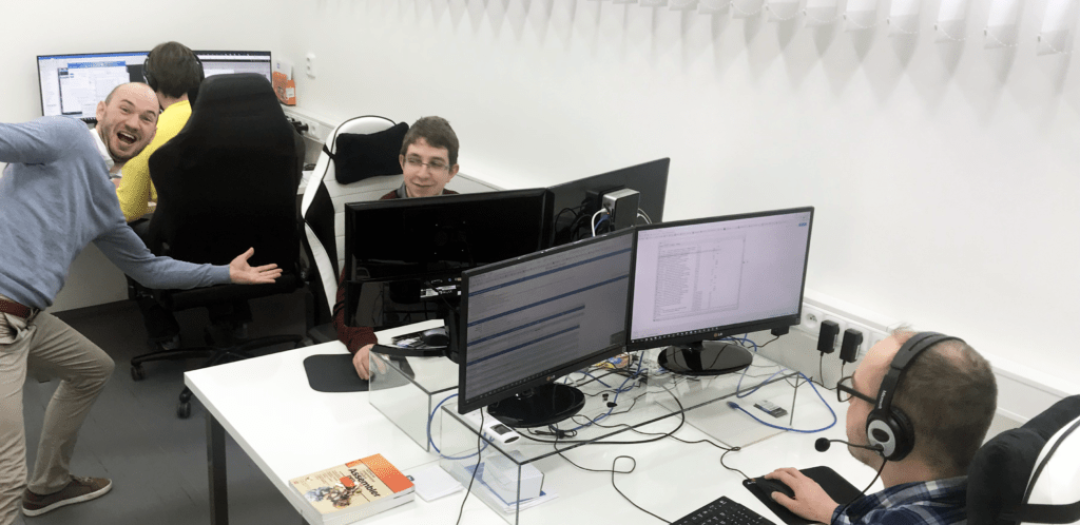How Our Tech Support Operates
When creating new web pages of our company PATRON-IT s.r.o. we asked our customers how have our services proved to them. Answers are in references. We were expecting to be praised for the efforts we put into security, a decrease of downtime, the lesser IT costs, or how sympathetic I and my companion are. 🙂
To our surprise, customers wrote the most about how enthusiastic they are about our technical support. We know we have great technical support, but we expected the praise to spread evenly across all “departments” of our company. 🙂 After the last story Non-existent Technical Support: One-Man Show as a Company and previous experiences with Microsoft and Vodafone support, I have come to understand the customers. 🙂
Thus I would like to share with you how our technical support operates.
History
When we started to do business with my business associate, we both had a phone attached to the bodies (figuratively). When a customer had a problem, he has directly reached us. And we tried to solve the problem as soon as possible. Customers were extremely happy with this system, so we were doing well. They have always reached us. They knew who they were talking to because we knew each other personally. We knew their environment, and they did not have to explain the problem to three different people who were constantly redirecting them.
But as we grew up and gained more customers/colleagues, the thing was no longer just a “one” man show. But I wanted the customer service to be as comfortable as when we were doing it ourselves:
- The customer has always spoken to an experienced /correct colleague. I know how annoying is it to get through different levels of support, a voice machine or a receptionist to someone who can finally help you. Each time you need to explain your problem again and waste your time.
- Reporting a problem or requesting help was still easy. I am annoyed when I have to fill in the form or write an extensive email to get help.
- Help was timely. When an important system is not running, every minute is expensive. Likewise, when someone´s computer is not working, he does not have a whole day to wait for a repair – he has to catch up with overtime.
I also wanted the proposed system not to overburden my colleagues, so that everyone could turn off the phone and relax in their leisure (it really did not exist for me at the beginning).
How it works with us
I wish that all that I have described was true right from the start. Of course, it was not. The current state has been a long way of gradual improvement and small adjustments.
Simple request reporting – by phone
Support requests are submitted to us primarily by phone. We have 1 easy to remember the phone number to which everyone calls. It is the fastest (if you do not write faster than you talk) and at the same time the most comfortable (nothing to fill in). At the same time, colleagues can directly ask for additional information.
The customer does not have to fill in any form or ticket. Everything is done by my colleagues, who enroll the case into the system. The customer then receives a job report at the end of the month, which states: what was dealt with, who dealt with it, how long it took and how it was solved. I wrote about the work reports (with their sample) in the article Work Reports – a Miracle Cure That Came Just in Time.
I’ve seen a few companies that strictly require sending e-mail support requests. They say they need to have everything “black on white” so someone does not say that he or she has not asked for it. In fact, in the nine years, I’ve been in business, I have not had such a problem to deal with.
Always experienced and the right person
The phone always rings to everyone at technical support but is picked up by the right colleague with whom the customer is dealing with or the one with the most experience. We have all our customers and their employees stored in a shared phone book. We also please the customers by greeting them by name. They save time by introducing themselves and they can start with the reason they are calling.
Everyone who works for support has numerous years of management experience. The one who picks up the phone will almost always solve the whole request. It happens only occasionally that the request is more complex and needs to be delegated/solved by more people. In this case, we will share the information internally and do not burden the customer by having to re-explain the request.
Timely help – immediately
We have reserved a small support department in the company. Colleagues are primarily responsible for supervising systems and helping customers. We have a rule that there must always be at least 3 people (we would like to extend it to 5 in 2018). As a result, the customer reaches us immediately and colleagues immediately start working on the request.
Colleagues find the pc a caller is currently logged in on in the monitoring system (according to the caller’s name) and can connect directly. This eliminates the need to navigate a user (for example, to download a remote assistant program or find a computer name). Previously, we have listed the computer name in the desktop background (via Bginfo program) and the customer has told us, but the current mode is even more convenient.
Most of the requests are solved during the phone call itself. If the request is more time consuming, the colleagues agree with a customer at an appropriate time when the computer is not needed.
What the colleagues have to say
I asked my colleagues how they view working on technical support from their point of view. They told me they were delighted to be able to help others – they are very pleased with the customer’s praise/thanks. At the same time, the job is diverse and they always learn something new.
Finally, they have mentioned one more thing that did not occur to me. However, when I go back, it is extremely important. They like that they know a number of customers/their employees personally. They know customers either from the time they were at the service and went to them (everyone is constantly moving with us as our knowledge and experience grow) or from occasional technical support services (we want them to look visit a customer once in a while).
Knowing the customers personally is a great thing. It greatly improves relationships, improves understanding and reduces misunderstandings. Both sides will recall the person on the other side and know that there are people who respect each other on both sides. (The colleague knows that the customer does not call needlessly and the customer also knows that the colleagues will do everything they can to help them as soon as possible).
We choose our team carefully (see People Are the Foundation of Our Company) so we always are in a good mood at work, which we can transfer to our customers. We would also reject an experienced person when we see that the person is “bitter” and has no respect/understanding for the customers. At the same time, I and my partner second our colleagues, and if a customer behaves rudely, we will end our cooperation with the customer (or talk to one´s supervisor). We work not only for the money but because we enjoy it.
Conclusion
Such is the process of technical support for us. Of course, it would not work so well, not for the greatness of our colleagues and their excellent work.
At the same time, I believe that our customers appreciate our efforts in the field of computer security, professionalism, reduction of downtime. But security is something that can not be seen. Paradoxically, the better you care about security, the less the customer thinks he needs it. When there is no network breach, they think it is safe “outside”. 🙂 As well as increasing network/server availability (i.e., downtime elimination), customers are always grateful and we are heroes. Here the rule “Yesterday’s extras, today’s standards” applies.
Do you like it? What do you think about it? Do you have any insights or ideas for improvement?













Discussion